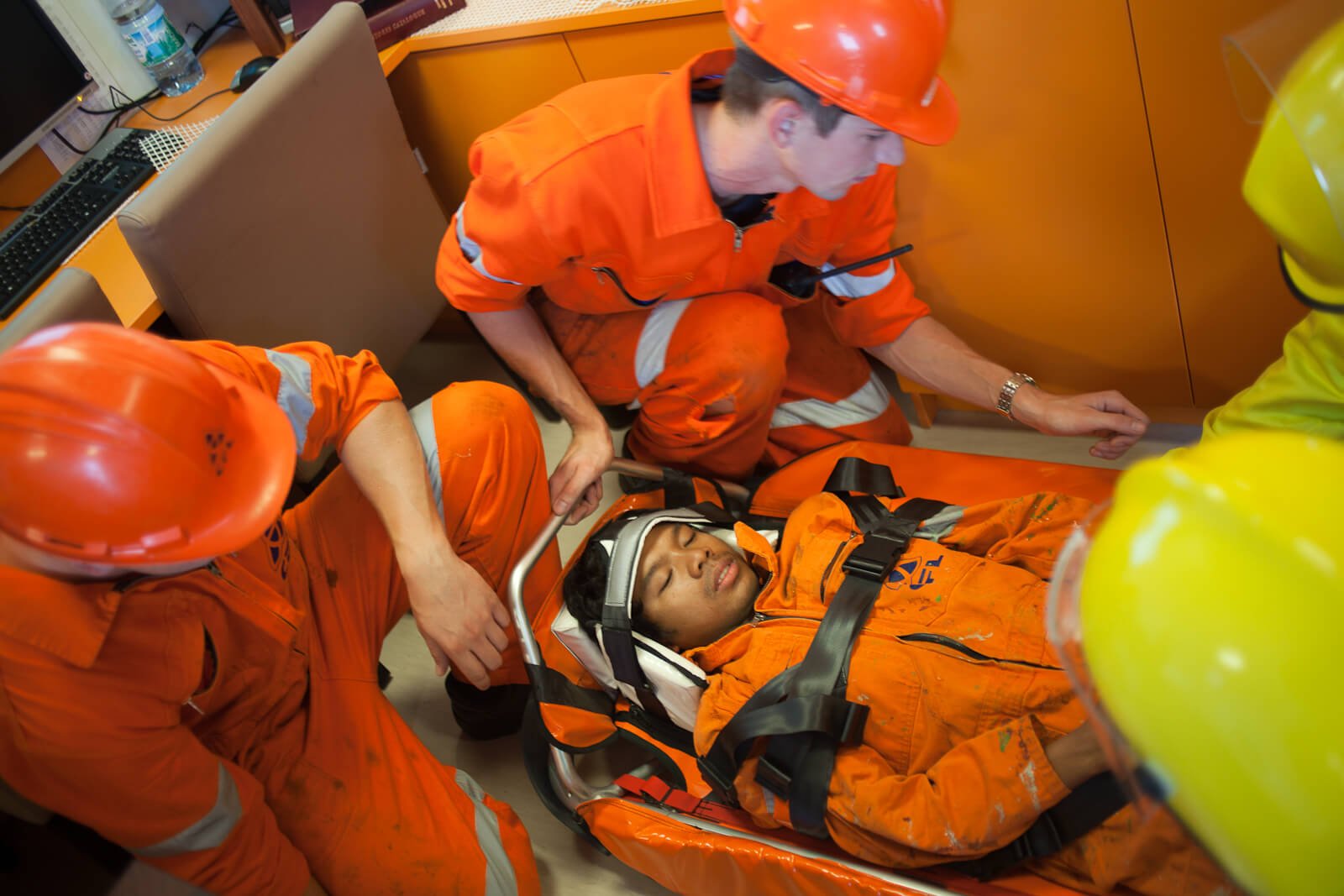Ensuring health and safety onboard vessels has historically been one of the maritime industry’s most pressing challenges. In the past, seafarers and passengers were often left with limited access to medical care during voyages. Emergency situations relied heavily on basic first aid kits, radio consultations with onshore doctors or diverting the vessel to the nearest port—options that were far from ideal when dealing with life-threatening conditions or complex medical needs. The remote and unpredictable nature of the open ocean only added to the difficulty, creating significant gaps in the ability to provide consistent, high-quality healthcare.
Today, however, advancements in medical management solutions are transforming how healthcare is delivered at sea. These solutions encompass a range of innovative technologies and services designed to anticipate, address and manage medical needs onboard, ensuring that crews and passengers receive timely, effective care wherever they are in the world. From sophisticated telemedicine systems to comprehensive onboard medical kits and trained support teams, these developments represent a significant step forward in maritime health and safety.
In this article, we’ll explore how modern medical management solutions are overcoming long-standing challenges and their impact on protecting the wellbeing of everyone at sea.
Understanding Medical Management Solutions
Medical management solutions are comprehensive systems and services designed to provide high-quality healthcare support in remote environments, like vessels at sea. These solutions go beyond basic emergency measures, integrating advanced technology, tailored resources and expert guidance to address long-standing barriers and set new standards for maritime healthcare.
Advanced Maritime Medical Management Solutions
Telemedicine Platforms
One of the greatest challenges in maritime healthcare has always been the isolation of vessels, where immediate access to medical professionals was nearly impossible. Telemedicine platforms have revolutionised this by connecting vessels to onshore doctors through secure, real-time communication tools. With high-speed satellite internet and advanced telecommunication systems, crew members can consult medical experts for accurate diagnoses, treatment recommendations and monitoring in emergencies.
These platforms overcome the challenge of limited onboard medical knowledge by providing instant access to specialists. Features like video consultations and the ability to transmit health data, including vital signs, high-resolution images and test results, ensure a level of care previously unattainable at sea. This reduces the need for costly diversions or medical evacuations, minimising disruption to operations while safeguarding the wellbeing of crew and passengers.
Customised Onboard Medical Supplies
Traditional maritime first aid kits typically offered only generic supplies that were ill-equipped to handle the diverse medical scenarios encountered at sea. Modern medical management solutions address this by providing customised onboard medical supplies tailored to the vessel’s specific needs, crew size and voyage conditions.
For example, ships travelling through regions with unique health risks, such as tropical diseases, are now equipped with appropriate medications and preventive tools. These kits also include advanced medications, diagnostic tools and specialised equipment like automated external defibrillators (AEDs) and portable ultrasound devices. By having the right supplies readily available, response times in emergencies are significantly reduced, increasing the chances of successful interventions and creating a safer environment at sea.
Crew Training
Historically, one of the most significant barriers to effective medical care at sea was the limited medical expertise among crew members. Modern medical management solutions bridge this gap with robust training programmes that transform crew members into competent first responders.
These courses cover basic first aid, the use of advanced medical equipment and protocols for stabilising patients until professional guidance can be obtained. In emergency situations where every second counts, trained crew members can administer life-saving care, such as performing CPR, treating severe injuries or using AEDs. By empowering crews with practical knowledge and clear protocols, this approach reduces the risks associated with delayed medical intervention and strengthens overall safety measures onboard.
Preventive Care Measures
Prevention has long been an underdeveloped aspect of maritime healthcare, with most efforts focused on reacting to medical issues rather than preventing them. Modern medical management solutions have shifted this focus, prioritising proactive health measures to mitigate risks before they escalate.
Preventive care includes regular health monitoring, which tracks vital signs and identifies potential health concerns early, and wellness initiatives that address both physical and mental health. For example, telemedicine systems can monitor chronic conditions like diabetes or high blood pressure, ensuring these are managed effectively during long voyages. Wellness programmes combat the stress and isolation often experienced by seafarers, offering mental health support and strategies to maintain fitness and wellbeing. Vaccination drives and pre-departure health screenings further reduce the likelihood of disease outbreaks onboard. These measures create a healthier crew, reduce downtime due to illness and contribute to safer and more efficient operations.
Emergency Protocols
Maritime emergencies are unpredictable and often life-threatening, compounded by the logistical challenges of providing care in remote locations. Historically, the lack of clear, standardised emergency procedures resulted in delayed responses and poor outcomes. Modern medical management solutions address this by implementing detailed emergency protocols that are customised for each vessel and scenario.
These protocols outline step-by-step procedures for triaging patients, stabilising their condition and coordinating with onshore medical facilities or emergency evacuation services. Advanced telemedicine integration ensures that remote experts can guide crews in real-time during emergencies, while access to custom medical supplies allows for immediate and effective care. For crew and passengers, these systems provide assurance that in a crisis, the vessel is fully prepared to manage medical emergencies, enhancing safety and building trust in maritime operations.
Final Thoughts
Medical management solutions have revolutionised healthcare at sea, addressing long-standing challenges and raising the standard of care for both crew and passengers. Looking ahead, the future of healthcare at sea is filled with promise. Advances in artificial intelligence and wearable technology are poised to enhance real-time monitoring and diagnostics, while virtual reality and simulation-based training could further empower crews to respond to medical emergencies with greater skill and confidence.
As the maritime industry continues to evolve, investing in these innovations will be crucial to ensuring the health, safety and wellbeing of everyone onboard. The journey so far has demonstrated that with the right tools and solutions, the challenges of providing healthcare at sea can be overcome, paving the way for an even safer and healthier future on the world’s oceans.







